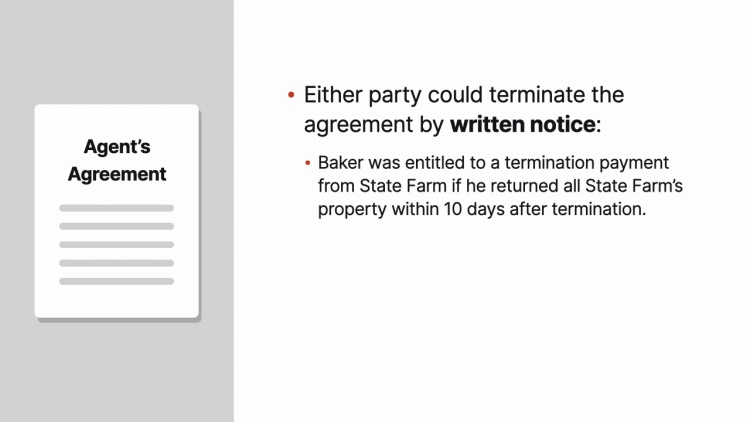Baker v. Commissioner
United States Tax Court
118 T.C. 452 (2002)

- Written by Robert Taylor, JD
Facts
Warren Baker (plaintiff) operated the Warren L. Baker Insurance Agency (agency), which sold policies for State Farm Insurance Companies (State Farm). Baker’s contract with State Farm indicated that he was an independent contractor and was required to work with State Farm exclusively. The contract also stated that the agency’s business materials that were provided by State Farm, as well as the agency’s customer lists and policyholder materials, were State Farm’s exclusive property. Baker developed the agency’s customer base and policyholder materials, selected the office location, and hired and trained the employees. There was no employment contract between Baker and the agency’s employees. When Baker closed the agency, he passed on his customer base, office phone number, and sales techniques to a successor State Farm agent. Baker was entitled to a termination payment from State Farm, provided that he delivered all of the agency materials to State Farm and honored a covenant not to compete with State Farm for one year. On Baker’s federal tax returns, he reported the termination payment from State Farm as capital gain. The federal tax commissioner (commissioner) (defendant) issued a deficiency notice against Baker, determining that the termination payment constituted ordinary income. Baker petitioned the United States Tax Court for a redetermination.
Rule of Law
Issue
Holding and Reasoning (Panuthos, J.)
What to do next…
Here's why 907,000 law students have relied on our case briefs:
- Written by law professors and practitioners, not other law students. 47,100 briefs, keyed to 996 casebooks. Top-notch customer support.
- The right amount of information, includes the facts, issues, rule of law, holding and reasoning, and any concurrences and dissents.
- Access in your classes, works on your mobile and tablet. Massive library of related video lessons and high quality multiple-choice questions.
- Easy to use, uniform format for every case brief. Written in plain English, not in legalese. Our briefs summarize and simplify; they don’t just repeat the court’s language.





